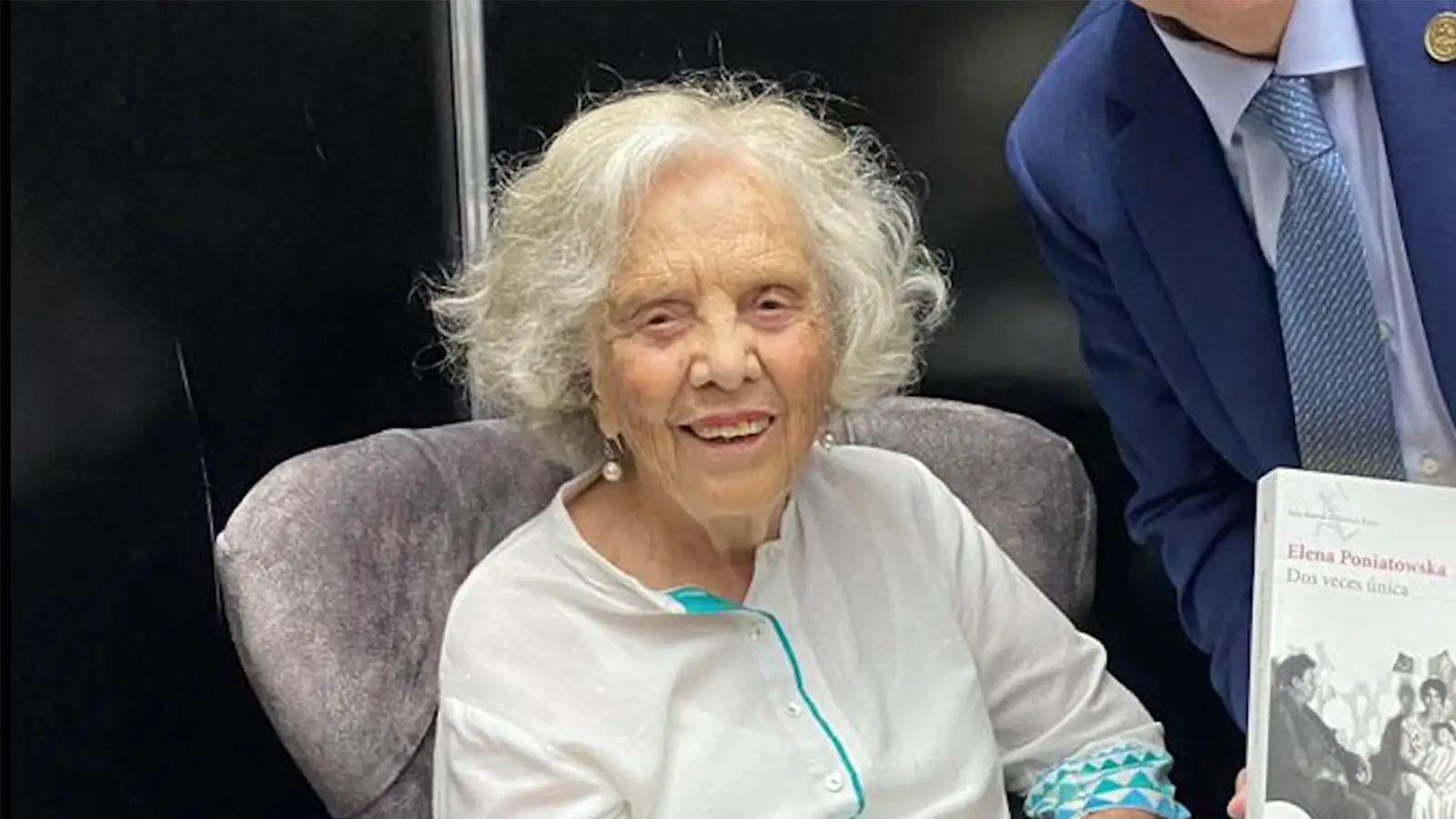Elena Poniatowska is, without a doubt, one of the most powerful and committed voices in Latin American literature and journalism. Although she was born in Paris, France, in 1932, her heart, her voice, and her struggle have been deeply Mexican. With a heritage that combines European nobility with the combative spirit of Latin America, Elena has built a career spanning more than seven decades dedicated to narrating the realities of those who rarely have the opportunity to be heard.
She arrived in Mexico when she was just ten years old, fleeing with her mother from the ravages of World War II. She was raised in a bilingual home, but it was Spanish—and particularly Mexican vernacular—that became the foundation of her work as a writer. Throughout her life, Poniatowska has demonstrated that identity does not always come with one’s place of birth, but with the causes we choose to embrace. And she embraced Mexico completely: its pains, its struggles, its contradictions, and its beauty.
From a very young age, he ventured into journalism, starting at the Excélsior newspaper and then moving on to multiple publications such as Novedades, La Jornada, and Proceso. It was through journalism that he found his calling as a social chronicler, focusing on issues ranging from poverty, social injustice, student and labor movements, to the struggle of women and minorities. She has never been afraid to say what others remain silent about. Her writing is sharp, direct, but also deeply human.
One of the moments that marked her career was the publication of La noche de Tlatelolco (The Night of Tlatelolco) in 1971, a compilation of testimonies about the massacre of October 2, 1968. The book, which was censored at the time, became a key work for understanding one of the darkest chapters in modern Mexican history. Poniatowska did not write from a position of privilege, but from empathy and indignation, standing alongside the victims and those who were silenced by power.
But her work is not limited to denunciation. She has also tenderly narrated the small stories of everyday life. She has written novels, short stories, essays, poetry, and children’s books. Works such as Hasta no verte Jesús mío, Leonora, Querido Diego, te abraza Quiela, and El tren pasa primero demonstrate her ability to transform real lives into profound and moving narratives.
In addition, she has been a tireless promoter of culture. She participated in the founding of the National Film Archive, supported independent publishing movements such as Siglo XXI, and has mentored young journalists and writers. She has received numerous awards, including the Cervantes Prize (2013), the Legion of Honor in France, the Belisario Domínguez Medal (2023), and several honorary doctorates. However, beyond the awards, what truly distinguishes Elena is her work ethic, her social sensitivity, and her fidelity to human values.
In recent years, even when her health has required her to slow down, Elena remains a respected and beloved figure. Her home in Mexico City continues to be a meeting place for intellectuals, artists, journalists, and activists. At over 90 years old, her lucidity, her passion for truth, and her closeness to social causes keep her relevant.
Elena Poniatowska has not only told the story of Mexico, she has accompanied and transformed it. Her life and work remind us that writing is an act of love, resistance, and memory. And in times when silence is often complicit, her voice remains a beacon that inspires and guides.


































Leave a Reply